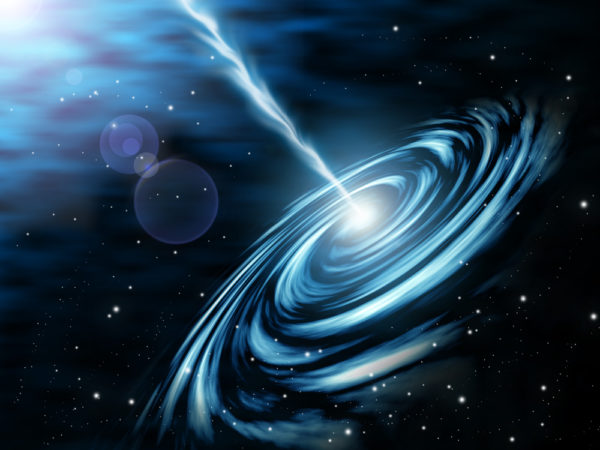Astronomers think they might be able to detect black holes falling into wormholes using ripples in spacetime known as gravitational waves, but only if wormholes actually exist and such a scenario ever happened, a new study finds.
According to Einstein, who first predicted the existence of gravitational waves in 1916, gravity results from the way in which mass warps space and time. When two or more objects move within a gravitational field, they produce gravitational waves that travel at the speed of light, stretching and squeezing space-time along the way.
Gravitational waves are extraordinarily difficult to detect because they are extremely weak, and even Einstein was uncertain whether they really existed and if they would get discovered. After decades of work, scientists reported the first direct evidence of gravitational waves in 2016, detected using the Laser Interferometer Gravitational-Wave Observatory (LIGO).



